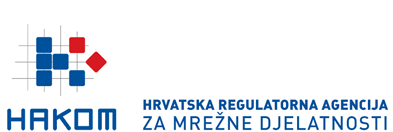ZAGREB, December 4 2018 - At a meeting of the Ministers of the EU Transport, Telecommunications and Energy Council the legislative acts were approved. The acts reached a political agreement in June this year and it was adopted by the European Parliament in November 14, representing the reform of the regulatory framework for electronic communications such as the Directive of the EUROPEAN Parliament and of the Council establishing the European Electronic Communications Code (Recast) and the (EC) No 1211/2009 of the European Parliament and of the Council (BEREC regulation) ended the legislative process that began in September 2016, when the EU Commission referred to the legislative process of these two proposals as part of the Digital Single Market Strategy.
The most significant news for the end users is that retail price of telephone calls and SMS text messages sent within the EU Member States are regulated in this manner. Retail prices will be charged to consumers, i.e. to individuals who use the services for non-commercial, craft or professional purposes.
The maximum allowable costs will be 0.19 € per minute for calls and 0.06 € per single SMS text message. These prices do not include VAT.
The retail price regulation for telephone calls and SMS messages shall be applied from May 15, 2019. the end users will be informed about all details by HAKOM.
The other provisions of the Code should be transposed into the national legislative bodies of the Member States, after further applied in practice. Member States will have a two-year deadline for transposing the provisions.
Among the many news stipulated by the Code the emphasis is placed on measures to encourage investment in very large network capacities, radio spectrum allocation provisions aimed at speeding up the development of 5G networks and provisions on symmetrical regulation of access networks to strengthen the market.
With regard to the rights of the end-users, the establishment of a single system of protection of end-users throughout the EU is planned, whereby the state will not be able to prescribe stricter or less stringent measures. As for the Member States having stricter protection measure a transitional period is planned where such measures can stay in force. Furthermore there are predicted plans for partial extension of the provisions on end-user protection and services other than traditional communication services, such as OTT services that are provided over the Internet, such as a messaging application.
It is also important to point out the new provisions in the Single European Emergency Number (112). Member States will have the obligation to establish a public risk notification system through which users on their mobile phones are notified of natural disasters or other significant dangers in the area they are in.
These provisions of the Member States will need to be adopted within three and a half years after the entry into force of the Code.
# # #
For additional information please contact:
Croatian Regulatory Authority for Network Industries (HAKOM)
Roberta Frangeša Mihanovića 9
10110 Zagreb, Croatia
Tel. + 385 (0) 1 700 70 07
Fax + 385 (0)1 700 70 70
Media inquiries can be submitted online using HAKOM’s official website:
Registration required.
ABOUT HAKOM: HAKOM (www.hakom.hr) - Croatian Regulatory Authority for Network Industries – ensures preconditions for a fair market competition, stable growth and environment for innovations in the electronic communications and postal services market. HAKOM protects users’ interests and the possibility of choice among various communications and postal services at affordable prices, defines sustainable competitive conditions for operators and service providers under fair conditions for return on investment, and provides support to economic growth, public services and the quality of life in the Republic of Croatia by using modern technologies. HAKOM’ strategic goals are: to promote regulation of the electronic communications and postal services market, to support growth of investments and innovations in the electronic communications and postal services market, to provide efficient use of limited resources, to accelerate the growth of broadband products and services, to provide affordable offers of communications and postal services, to provide protection and informing of users, to build an efficient and comprehensive information system, to define and implement efficient processes, and to acquire multi-disciplinary competencies in market regulation.

